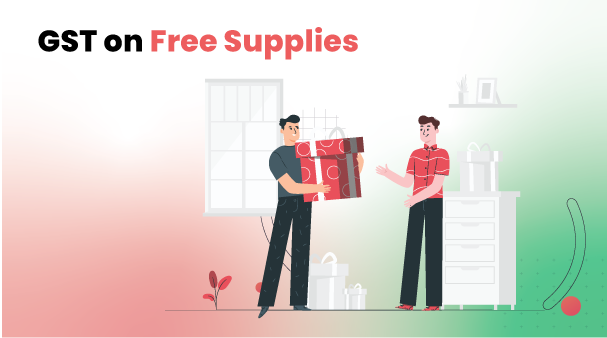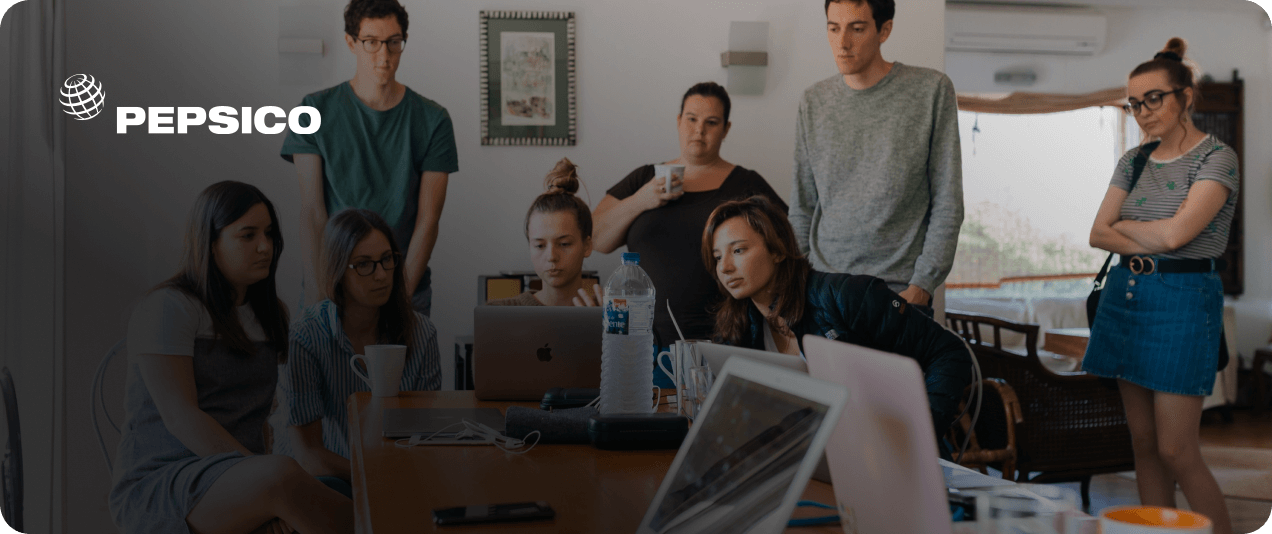
The term ‘Gift’ has nowhere been defined under GST law. So, we will look into the definition of ‘Gift’ in Gift Tax Act, 1958 which states that “Gift is a transfer by one person to another of any existing movable or immovable property made voluntarily and without consideration in money or money’s worth.” Thus, ‘Gift’ is a gratuitous act which does not require a consideration. Though, love, affection, spiritual benefit etc. may be the factors behind such gift but these factors cannot be called as legal considerations. Further, there should not be any contractual obligation behind such gift as it is to be made voluntarily without any compulsions attached to it.
GST is applicable on supply of goods/services for a consideration. However, in certain cases even if the business disposes off the assets for free, they are required to discharge GST on such disposed assets.
Trade Samples refers to products given to consumers to try before purchasing. This method is commonly used as a direct marketing strategy by FMCG Companies to market new products. There are various ways in which these samples are drawn from the manufactured lot. Let us see some examples and the tax treatment thereon:
1. Physician Samples not for sale: this is a common method in which pharmaceutical products are issued to doctors/physicians to try out with the patients. Hence in line with the requirements of Drugs & Cosemtics Act, 1940 these goods are to be labelled as “Physician Sample and not for sale” and there should not be any pricing details/MRP on such packings. Hence when such goods are manufactured, the prorated input credit needs to be reversed by the manufacturer at his end before he brings them into his supply chain for distribution to the physicians using his medical representatives. Hence all supply chain issuance would be based on non-returnable gate passes only as the ITC thereon is already reversed at the manufacturer’s end and no further GST is applicable till it reaches the end customer.
2. Trade Samples with no commercial value: this is common in the FMCG sector, wherein they distribute free samples to the customers in order to elicit their views before the launch of the product. On these samples also, there will be no mention of any price. However these samples can be of special packing or they can be drawn from the saleable lots. If they are of special packing, then at the manufacturer’s end if the ITC is reversed, then they can be issued to the supply chain on the strength of non-returnable gate pass. But if they are drawn from the saleable lots, then ITC needs to be reversed on the actual sale value as they are going to given free of consideration.
3. Trade samples for export with no commercial value, but value declared for customs purposes: this is common in all export sales, wherein the customer would like to test the goods before placing a bigger commercial order. In all such cases, the manufacturer/trader would like to send some samples without charging any commercial consideration from his overseas buyer. But under the Customs Law, there is a need to declare the open market value for these goods. But when there is no commercial consideration in return, one needs to go for GR waiver from this Authorised Dealer (AD) Banker and enclose such declaration to his export documents so that the same is not captured in the EDPMS portal for monitoring of foreign exchange receipts. In this case, there is no need to reverse any ITC, as these goods are sent on export. As per Section 16(1) of CGST Act, 2017 every registered person under GST is eligible to avail input tax credit on any supply of goods and services that can be used in the course or furtherance of business. A person is entitled to avail the credit if the inputs or input services supplied is used ‘in the course or in furtherance of business’. Thus, there is no requirement in law that inputs of input services must be used for making taxable supplies only, mere use in the course or furtherance of business is enough.
4. Offer of additional quantities: During festival seasons, it is common to come across seasonal discount wherein merchants offer additional quantities for the price of a product. In all such cases, there is no need to reverse any ITC as the products are being discounted for supply and it may result in excess ITC remaining in the hands of the trader. But it is acceptable under law as the same is in or in relation to the business. This position has been ratified by the CBIC, Sectoral FAQs- Invoice & Returns: Question 8, CBIC (Sept. 11, 2020, 12:24 PM),https://cbic-gst.gov.in/sectoral-faq.html. CBIC’s FAQ clarifies the charge on GST on such free supplies. It states that the value of free good is to be considered as trade discount where offering two goods at the same price is equal to offering one good at 50% discount. Thus, the invoice value would include both goods and GST will be charged on the invoice value of supply. Therefore, need for reversing the ITC under Section 17 will not arise in such a situation. Further, such goods are considered as supplies and not gifts as they are given for free to incentivize buyers to buy goods of the company and thus, ITC can be claimed on it.
5. Volume discounts: In this case, the discount is known before making the supply but the quantum will be decided after a period of time. Hence the commercials will be decided by way of credit note. In all such cases, the buyer has to reverse the excess ITC availed at his end, so that the supplier can reduce his liability on confirmation from his buyer.
6. Warranty supplies: In this case, the consideration for such warranty replacement is already factored in the original supply and hence there is no need to reverse the ITC when such warranty replacements are undertaken on the strength of gate pass. The input credit on such replacement parts is eligible as it is in relation to the business.
7. Supply of promotional materials: In this case, the manufacturers like OEMs supply the marketing materials, placards, hoardings etc in order market their products on which they may not charge any consideration from their dealer network. In all such cases, the ITC is not eligible for the manufacturer as the products are supplied free. But if he avails ITC and does the supply at a concessional rate, then the ITC would be eligible but the consideration would be subject to GST. Here there is a possibility that the authorities may allege related party concept and may demand the output tax on the full consideration of the product, but one can take an argument that in a related party transaction, if the recipient is entitled for ITC then the declared value needs to be accepted as provided under Sec 15 of CGST Act, 2017.
How to disclose these supplies in the returns?
Type 1 – If the Free Samples are not treated as supplies and there is no requirement of disclosing the same as outward supplies in the returns. The credit relating to the same can be disclosed in Table 4 of the Form GSTR 3B as Ineligible ITC under Section 17(5) or Credit Reversal under “Others” if credit was already availed. Here the movement is based on gate pass only.
Type 2 – If the Free Samples are treated as outward supplies, then they will have to be disclosed as taxable outward supply in Table 4 of Form GSTR 3B as B2C sale. Free Supplies do not attract credit reversal nor are they additional supplies and hence do not require any specific disclosure in the returns. In case you decide to pay output tax on the same then raise a B2C invoice and accordingly disclose the same in Form GSTR 3B and Form GSTR 1. Here the movement is based on invoices.
In 2019, the GST Policy wing issued a Circular CBIC-GST Policy Wing, Circular No. 92/11/2019-GST on 7th March 2019 which clarified the position of free supplies under GST law. According to the circular:
1) Free samples and gifts shall not be considered as supply and ITC availed shall be reversed as Section 17(5)(h) would be applied in this case, unless such free samples fall within the ambit of Schedule I where ITC is availed then GST shall be levied. This clarification makes it clear for business assets which are provided as gifts for promotional schemes to benefit the company. ITC shall be available as long as such goods fall under the activity of supply as per Schedule I of CGST Act, 2017.
2) Free cost of goods such as in offers such as buy one, get one free shall be considered as mix supply (some goods are provided for free of cost) and GST shall be levied under Section 8 of CGST Act, 2017. Further, ITC shall be availed because the value of such goods include the free supplies and they are considered as supply or part of supply.
3) In cases of volume discounts such as buy more and save more offers, it has been clarified that such discounts are entered at the time of sale but determined at the end of the year after GST has been levied on the invoice value. The discounted value shall be reduced from the value of supply according to the conditions under Section 15(3) of CGST Act, 2017 which includes reversal of ITC by recipient of supply. It is clarified that ITC shall be available to the supplier on the input tax in relation to the discounted supply of goods or services.

